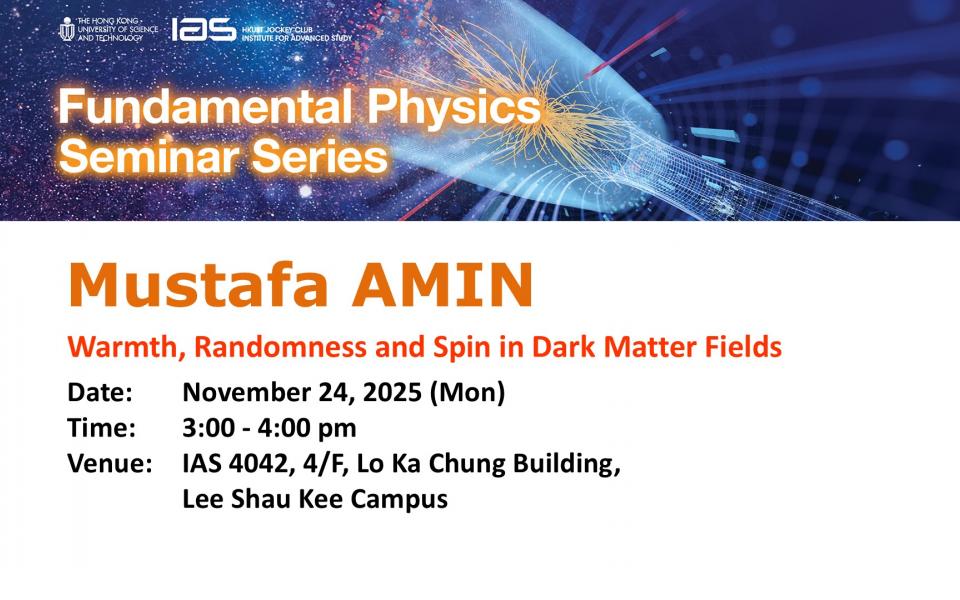Fundamental Physics Seminar Series - Warmth, Randomness and Spin in Dark Matter Fields
Supporting the below United Nations Sustainable Development Goals:支持以下聯合國可持續發展目標:支持以下联合国可持续发展目标:
Abstract
What can we learn about the mass and intrinsic spin of dark matter particles from cosmological and astrophysical observations? The speaker will discuss how spin can determine the lightest mass dark matter particles can have. When dark matter is a sufficiently light boson, it becomes wavelike — the speaker will show that in this case its mass and intrinsic spin angular momentum can impact the (i) variation of dark matter density inside halos, (ii) lead to formation of solitons with macroscopic intrinsic spin, and (iii) lead to early formation of structure. Time permitting, he might briefly discuss direct detection prospects for such dark matter, and novel connections to "spinor” Bose-Einstein Condensates in the laboratory.
About the Speaker
Prof. Mustafa AMIN's work is aimed at understanding the origin of structure and matter in our cosmos. He specializes in exploring nonlinear dynamics of cosmological fields, especially implications of nonperturbative phenomenon for the end of inflation in the early universe and structure formation in dark matter in the late universe. Prof. Amin obtained his PhD from Stanford University and undertook postdoctoral fellowships at the Massachusetts Institute of Technology and the University of Cambridge. He is currently an Associate Professor of Physics at Rice University in Houston, Texas.
About the Center for Fundamental Physics
For more information, please refer to https://cfp.hkust.edu.hk/.
For Attendees' Attention
Seating is on a first come, first served basis.
